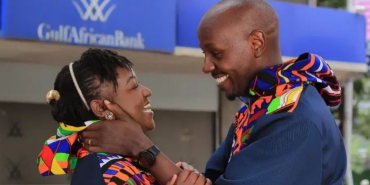Wababas Dominate as Kenyan University Students Lament Dating Frustrations

The phenomenon of "sugar daddy" relationships in Kenya has become increasingly prevalent and visible in recent years.
This trend, reflected in popular culture through songs like Diana Bahati's "Mubaba," highlights a shift in attitudes towards transactional relationships among young women in their twenties and thirties. While not a new concept, as evidenced by earlier musical works like Them Mushrooms' "Unkula Huu" from the 1980s, the contemporary manifestation of these relationships has been amplified by social media platforms. Young women now openly showcase their lifestyles funded by wealthy older men, sharing images of luxury cars, yachts, and expensive champagne on Instagram and TikTok.
The prevalence of these arrangements is supported by research. A 2018 study by the Busara Centre for Behavioural Economics found that approximately 20% of female university students aged 18-24 had experience with a "sponsor." Moreover, a 2016 study by A Well Told Story revealed that 65% of Kenyan youth saw no issue with such relationships. This trend has not gone unnoticed by young men, who express frustration at the difficulty of competing with wealthy older suitors. University student Anderson Kalu articulates the challenge, stating "When you're going up against someone who is loaded, you're already on the losing side."
He notes that the allure of financial stability often outweighs traditional notions of romance for many young women facing economic pressures. The evolution of these relationships has been facilitated by technology. While previously such arrangements might have been initiated in clubs or hotels, social media platforms have become virtual meeting grounds for potential sugar daddies and their younger partners. This shift has made these relationships more accessible and, in some cases, more dangerous. The implications of these relationships extend beyond personal choices, impacting the broader dating and family landscape.
Health researchers have raised concerns about the potential spread of HIV, as some older men seek younger partners believing them to be less likely to be infected. Despite the risks and controversies surrounding these relationships, they continue to gain acceptance among certain segments of Kenyan youth. Sociologist Dr Roselyter Riang'a, an assistant professor at Aga Khan University Medical College posits that this dynamic is driven by societal expectations affecting both genders. For older men, the motivation often stems from a desire to maintain their perceived masculinity and attractiveness as they age.
These men, referred to as "wababas," may seek younger partners as a means of asserting their continued relevance and dominance in society. Conversely, younger women's participation in these relationships is frequently a response to economic constraints. Dr Riang'a notes that limited financial opportunities and rising living costs push some women to seek relationships with older, wealthy men as a path to upward social mobility. The allure of a luxurious lifestyle, symbolized by residences in affluent areas like Runda, can be a powerful motivator. Dr Riang'a also highlights the role of social media in glorifying the "mubaba" concept, elevating these older men to an undeserved heroic status.
She argues that this phenomenon is further fueled by economic disparities within society. The perception that older, established men are accumulating wealth while younger men struggle to find employment exacerbates the situation. It is important to note that the attraction in these relationships is primarily financial rather than emotional or physical. Dr Riang'a emphasizes that this dynamic reflects broader societal inequalities, where economic systems favour those who already possess wealth, disadvantaging younger generations. However, Dr Riang'a cautions young women against pursuing such relationships.
She argues that these arrangements are often unsustainable and potentially exploitative. The mubabas typically view their younger partners as accessories to bolster their social image rather than as genuine companions. Moreover, the wealth involved has usually been accumulated with the man's family over many years, and the younger woman's claim to it is tenuous at best. There have been instances where, upon the death of the older partner, the younger woman finds herself abruptly excluded from the family's assets and support system.
Dr Riang'a warns that by the time these women realize the need to secure their own financial independence, it may be too late to start. Thus, she views these relationships as short-term solutions that ultimately fail to provide long-term security or fulfilment for the women involved.














Add new comment